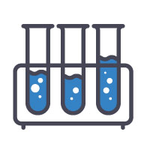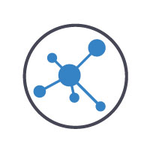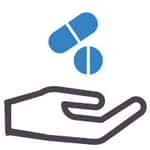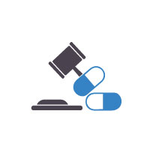What is Pharmacy
The pharmacy course deals with the study of pharmaceutical products and sciences. Students pursuing pharmacy courses will learn about the various concepts related to drugs and medicines. The pharmacy course will also help the students to understand how medicines and drugs affect the human anatomy in curing diseases.
Pharmacy courses can be pursued at both the undergraduate and postgraduate levels. There are around 3000 colleges in India that offer Pharmacy courses. Students to pursue Pharmacy courses must have a science background with a focus in biology. Pharmacy courses are offered in various specialisations such as Pharmacology and Toxicology, Pharmacy Administration, Pharmaceutical Chemistry, and Medicinal Chemistry.
Some career options available for the graduates after completing the pharmacy course are Pharmaceutical researchers, Pharmacy technicians, Pharmacists, Pharmacologists, Drug inspectors, and Research associates. The top recruiters for Pharmacy roles are Cipla, Sun Pharmaceuticals Industries Limited, Dr. Reddy’s Laboratories, Lupin Limited, Aurobindo Pharma Limited, Glenmark Pharmaceuticals, Novartis, Pfizer, Zydus Cadila and GlaxoSmithKline.
Highlights - Pharmacy
Particulars | Values |
Branch Name | Pharmacy |
Degree | |
Eligibility | UG: 10+2 Examinations in the science field with Biology PG: Bachelor's Degree in Pharmacy or related field PhD: Masters in Pharmacy or related field |
Admission Process | Entrance Exam |
Entrance Exam | GPAT, TS EAMCET Pharmacy, and OJEE Pharmacy |
Course Fees | Rs. 4 Lakhs |
Job profiles | Pharmacologists, Pharma technicians, Pharmacists, and Research Associate |
Average Salary | Rs. 2.6 LPA |
Recruiting Companies | Cipla, Sun Pharmaceuticals Industries Limited, Dr. Reddy’s Laboratories, Lupin Limited, Aurobindo Pharma Limited, Glenmark Pharmaceuticals, Novartis, Pfizer, Zydus Cadila and GlaxoSmithKline. |
Specialisation or Similar Ones
Pharmacy course offers various specialisations focused on different aspects of pharmaceutical sciences. The different areas of specialisations in pharmacy focus on specific areas of interest within the field, enhancing their expertise and career prospects.
Below are some of the important pharmacy specialisation areas that students can pursue.
BE Pharmaceutical Engineering | B.Pharma Allopathy |
Diploma in Homeopathy Pharmacy | M.V.Sc Veterinary Pharmacology and Toxicology |
B.Sc Pharmaceutical Chemistry |
Top Pharmacy Colleges in India
There are around 3000 colleges in India offering pharmacy courses and their specialisations. The skilled medical candidates are in high demand and have a great future. These colleges provide candidates with comprehensive coursework and expertise facilities. Here are a few top colleges where students can take admission to pharmacy courses.
Colleges | Fees |
Rs. 5.28 Lakhs | |
- | |
Rs. 4 Lakhs | |
Rs. 3.91 Lakhs | |
Rs. 4.60 Lakhs | |
Rs. 5.87 Lakhs | |
AIIMS Bathinda - All India Institute of Medical Sciences Bathinda | - |
ASTU Guwahati - Assam Science and Technology University, Guwahati | Rs. 6.12 Lakhs |
AVMC Pondicherry - Aarupadai Veedu Medical College and Hospital, | Rs. 15 Lakhs |
Rs, 7.52 Lakhs |
Note: The fee structure provided above can be for any particular Pharmacy course (Certificate/Diploma/ Degree/PGD).
Top Private Pharmacy Colleges in India
Several private colleges in India offer pharmacy degree programmes. Private pharmacy colleges are significantly more expensive than government pharmacy colleges. Some of the top private pharmacy colleges as well as pharmacy fees are mentioned below.
Colleges | Average Fees |
Rs. 1.65 Lakhs | |
Rs. 1.7 Lakhs | |
Faculty of Pharmaceutical Sciences of PDM University, Bahadurgarh | Rs. 1.78 Lakhs |
Rs. 1.1 Lakhs | |
Rs. 1.26 Lakhs | |
Rs. 1.3 Lakhs | |
Rs. 1.3 Lakhs | |
Rs. 1.26 Lakhs | |
Rs.1.48 Lakhs | |
Rs. 1.64 Lakhs |
Top Government Pharmacy Colleges in India
Several government medical colleges offer pharmacy courses with various specialisations in India. The fees for pharmacy colleges are affordable for the students pursuing pharmacy courses. A few top government pharmacy colleges are mentioned in the table below:
| Government Colleges | Fees |
Rs. 1.80 Lakhs | |
Rs. 1.18 Lakhs | |
Rs. 1.27 Lakhs | |
Rs. 2 Lakhs | |
Rs. 2.40 Lakhs | |
Rs. 12,450 | |
AIIMS Bhopal - All India Institute of Medical Sciences Bhopal | Rs. 5.73 K |
AIIMS Gorakhpur - All India Institute of Medical Sciences Gorakhpur | - |
Rs. 3.85 Lakhs | |
BPS Sonepat - BPS Government Medical College for Women, Sonepat | Rs. 3.75 Lakhs |
Eligibility Criteria (UG & PG) of Pharmacy
Pharmacy UG Courses Eligibility Criteria
Candidates need to fall under an eligible category to start with their application process to a certain college for a Pharmacy course. The Eligibility criteria are set by the various colleges and institutions that offer pharmacy courses at the undergraduate level. Below is the list of certain entrance requirements for pharmacy course:
- Candidates must have passed 10+2 from a recognised board.
- Candidates must have Physics, Biology, and Chemistry as their compulsory subjects.
Top UG Entrance Exam for Pharmacy
There are some institutions and colleges offering Pharmacy degree courses that require candidates to sit for the entrance exams. The candidates need to successfully qualify for the examination to sit for the counselling sessions. Below are the details of some of the entrance exams required by the candidates:
Exam Name | Level | Conducting Body | Exam Schedule |
State | West Bengal Joint Entrance Examinations Board | ||
State | State Common Entrance Test Cell - Maharashtra State | ||
UPCET | State | State Common Entrance Test Cell - Uttar Pradesh State | - |
National | NTA | ||
National | NTA | ||
National | NTA |
Pharmacy PG Courses Eligibility Criteria
Similarly, for PG courses also, the institutes and colleges have certain entrance requirements. The candidates need to ensure that they are eligible for the Pharmacy course before they start the application process. Below are certain entrance requirements for Pharmacy courses.
- Candidates must pursue a bachelor's degree in pharmacy or a related discipline.
- They must qualify for a certain entrance exam to be eligible.
Top PG Entrance Exam for Pharmacy
Similarly, the universities and colleges offering PG courses in Astronomy also require candidates to qualify for a certain entrance examination. These entrance exams like CUET PG and JEST are computer-based exams. Below are the details of some of the entrance exams required by the candidates:
Exam Name | Level | Conducting Body | Exam Schedule |
National | NTA | ||
University | National Institute of Pharmaceutical Education and Research | - |
College Predictors VIEW ALL
Scope of Pharmacy in India and Abroad
The Pharmacy scope is quite widespread in all the medical and healthcare fields. There are ample opportunities for the candidates after completing the pharmacy courses at both the undergraduate and postgraduate levels. Students can expect job opportunities in both the public and private sectors. Pharmacists play a key role in curing patients by giving them drug therapy and safe medications.
The scope of the pharmacy field is increasing continuously with the advanced medical techniques used in preparing medicines and drugs. India has a good reputation in the world market for producing various tablets, injections, and drugs in the hard times of the world like COVID. So, there are many job opportunities for candidates pursuing pharmacy courses in India.
Course Fees Pharmacy
| Minimum Fees | Maximum Fees | |||
|---|---|---|---|---|
| Private | Government | Private | Government | |
| UG | ||||
| PG | ||||
| DOCTORAL | ||||
| DIPLOMA | ||||
Course Subjects
Pharmacy course subjects provide basic knowledge about the pharmaceutical products and procedures used in medicines. The pharmacy syllabus will depend on the university or college chosen by the students. The subjects may differ at each level of degree. Below is the syllabus for both undergraduate and postgraduate levels of Pharmacy courses.
UG Pharmacy Syllabus
Students pursuing undergraduate pharmacist courses will focus on the basics of human anatomy and physiology. Some of the pharmacy subjects covered in the undergraduate course include Pharmaceutics, Chemistry, biochemistry, environmental study, and pharmacology. These pharmacy subjects will help the students understand the fundamentals of pharmacy. The syllabus below is taken from the Pharmacy Council of India, New Delhi.
Semester 1 | |
Human Anatomy and Physiology I– Theory | Pharmaceutical Analysis I – Theory |
Pharmaceutics I – Theory | Pharmaceutical Inorganic Chemistry – Theory |
Communication skills – Theory | Remedial Biology/Remedial Mathematics – Theory |
Human Anatomy and Physiology – Practical | Pharmaceutical Analysis I – Practical |
Pharmaceutics I – Practical | Pharmaceutical Inorganic Chemistry – Practical |
Communication skills – Practical | Remedial Biology – Practical |
Semester 2 | |
Human Anatomy and Physiology II – Theory | Pharmaceutical Organic Chemistry I – Theory |
Biochemistry – Theory | Pathophysiology – Theory |
Computer Applications in Pharmacy – Theory | Environmental Sciences – Theory |
Human Anatomy and Physiology II –Practical | Pharmaceutical Organic Chemistry I– Practical |
Biochemistry – Practical | Computer Applications in Pharmacy – Practical |
Semester 3 | |
Pharmaceutical Organic Chemistry II – Theory | Physical Pharmaceutics I – Theory |
Pharmaceutical Microbiology – Theory | Pharmaceutical Engineering – Theory |
Pharmaceutical Organic Chemistry II – Practical | Physical Pharmaceutics I – Practical |
Pharmaceutical Microbiology – Practical | Pharmaceutical Engineering –Practical |
Semester 4 | |
Pharmaceutical Organic Chemistry III– Theory | Medicinal Chemistry I – Theory |
Physical Pharmaceutics II – Theory | Pharmacology I – Theory |
Pharmacognosy and Phytochemistry I– Theory | Medicinal Chemistry I – Practical |
Physical Pharmaceutics II – Practical | Pharmacology I – Practical |
Pharmacognosy and Phytochemistry I – Practical | - |
Semester 5 | |
Medicinal Chemistry II – Theory | Industrial PharmacyI– Theory |
Pharmacology II – Theory | Pharmacognosy and Phytochemistry II– Theory |
Pharmaceutical Jurisprudence – Theory | Industrial PharmacyI – Practical |
Pharmacology II – Practical | Pharmacognosy and Phytochemistry II – Practical |
Semester 6 | |
Medicinal Chemistry III – Theory | Pharmacology III – Theory |
Herbal Drug Technology – Theory | Biopharmaceutics and Pharmacokinetics – Theory |
Pharmaceutical Biotechnology – Theory | Quality Assurance –Theory |
Medicinal Chemistry III – Practical | Pharmacology III – Practical |
Herbal Drug Technology – Practical | - |
Semester 7 | |
Instrumental Methods of Analysis – Theory | Industrial PharmacyII – Theory |
Pharmacy Practice – Theory | Novel Drug Delivery System – Theory |
Instrumental Methods of Analysis – Practical | Practice School |
Semester 8 | |
Biostatistics and Research Methodology | Social and Preventive Pharmacy |
Pharma Marketing Management | Pharmaceutical Regulatory Science |
Pharmacovigilance | Quality Control and Standardization of Herbals |
Computer-Aided Drug Design | Cell and Molecular Biology |
Cosmetic Science | Experimental Pharmacology |
Advanced Instrumentation Techniques | Dietary Supplements and Nutraceuticals |
Project Work | - |
Pharmacy PG Course
Students pursuing postgraduate pharmacy courses will focus on the advanced and sophisticated methods of medicine and drug systems. Some of the topics covered in the postgraduate studies are Advanced Biopharmaceutics & Pharmacokinetics, Modern Pharmaceutics, and also project work. The syllabus is taken from the Pharmacy Council of India, New Delhi.
Semester 1 | |
Modern Pharmaceutical Analytical Techniques | Regulatory Affair |
Drug Delivery System | Pharmaceutics Practical I |
Modern Pharmaceutics | Seminar/ Assignment |
Semester 2 | |
Molecular Pharmaceutics (Nano Tech and Targeted DDS) | Cosmetic and Cosmeceuticals |
Advanced Biopharmaceutics & Pharmacokinetics | Pharmaceutics Practical II |
Computer Aided Drug Delivery System | Seminar/ Assignment |
Semester 3 | |
Research Methodology and Biostatistics* | Discussion/ Presentation (Proposal Presentation) |
Journal Club | Research Work |
Semester 4 | |
Journal Club | Discussion/ Final Presentation |
Research Work | - |
Careers in Pharmacy
Pharmacy courses have a promising career in the medical field. They can work as pharmacists, research associates, pharmacologists, and medical assistants. Candidates after completing pharmacy courses can work in pharma companies, hospitals, clinics, biotech companies, and other pharmaceutical companies. Additionally, students can also pursue high-degree courses in pharmacy such as PhD and MD.
Job Profile | Job Description |
Medical Writer | Medical writers will work with doctors, scientists, and other subject matter experts, to create documents that effectively and clearly describe research results, product use, and other medical information. Their job is to document all the necessary information. This is one of the most sought jobs in Pharmacy. |
Clinical Research Coordinator collects and organises data obtained during studies and in field trials. They coordinate and process results gained from long-term testing of drugs, products, and medical procedures. | |
Drug Safety Associate | Drug safety associates are responsible for monitoring the safety of pharmaceutical drugs. They evaluate as well as prevent adverse reactions in patients. They distinguish and analyse the ratio of risks & benefits of a drug that is marketed in the pharma sector. |
Drug inspectors are responsible for inspecting establishments that manufacture, store, handle, or sell different cosmetics, food items, drugs, and other such items. | |
Pharmaceutical Scientist | Pharmaceutical scientists are well-trained experts and are mainly responsible for discovering, developing, testing, and manufacturing new medications and drugs. |
Formulation Development Associate | FD Associates are responsible for the development of new products, process systems, and formulations of drugs. They provide technical support to the team. |
Sales and marketing executives are responsible for increasing sales by studying the existing and potential volume of dealers. They submit orders by referring to price lists and product literature. They also recommend changes in products, services, and policies by evaluating results and competitive developments. |
Upcoming trends
There have been a lot of advancements in the field of Pharmacy. With the introduction of artificial intelligence in drug discovery and development, it has accelerated these processes and improved precision in clinical trials. The introduction of Big data analytics enhances the data management and predictive capabilities in pharmaceuticals. Telehealth services and the use of biosimilars are also expanding, further modernising the field.
Job Profiles and Top Recruiters
Pharmacy students can get jobs in both government and private firms. They are employed in food and drug research, drug manufacturing companies, and health care centres, and they can also work for themselves by having a small dispensary set up. Some of the main job profiles in the pharmaceutical industry have been listed below:
Top Recruiters:
- Cipla
- Sun Pharmaceuticals Industries Limited
- Dr. Reddy’s Laboratories
- Lupin Limited
- Aurobindo Pharma Limited
- Glenmark Pharmaceuticals
- Novartis
- Pfizer
- Zydus Cadila
- GlaxoSmithKline
Average Salary
The salary in the Pharmacy field is dependent on the organisation the candidate works with, the location, and the profile he or she works at. A fresher can get a package worth Rs. 2-4 LPA while an experienced professional can easily get a handsome salary package of about 10-12 LPA.
Job Profile | Average Salary |
Medical Writer | Rs. 5.8 LPA |
Clinical Research Associate | Rs. 4.4 LPA |
Drug Safety Associate | Rs. 4.1 LPA |
Drug Inspector | Rs. 7.4 LPA |
Pharmaceutical Scientist | Rs. 7.8 LPA |
Formulation Development Associate | Rs. 2 LPA |
Sales/ Marketing Executive | Rs. 3.4 LPA |
Source: Ambition Box and Glassdoor
The salary figures mentioned anywhere in these articles are just for reference purposes. Please treat them as such. Actual salaries may vary depending on respective candidates, employer, job location, and numerous other factors.
Required Skillset for Pharmacy
Pharmacy students can get jobs in both government and private firms. They are employed in food and drug research, drug manufacturing companies, and health care centres, and they can also work for themselves by having a small dispensary set up. Some of the main job profiles in the pharmaceutical industry have been listed below:
Top Recruiters:
- Cipla
- Sun Pharmaceuticals Industries Limited
- Dr. Reddy’s Laboratories
- Lupin Limited
- Aurobindo Pharma Limited
- Glenmark Pharmaceuticals
- Novartis
- Pfizer
- Zydus Cadila
- GlaxoSmithKline
Course Curriculum for Pharmacy
The pharmacy course curriculum includes specialised core subjects, workshops, projects, laboratory training, and industrial training. Apart from the hard skills, the course curriculum also includes soft skills such as communication skills, environmental science studies, ethics, and rules and regulations of the Pharmacy Council of India.
The curriculum is designed to develop a professional who has expertise in the subject, has industry knowledge, and understands the needs of the time. Apart from academic brilliance, a pharmacy student must have worked in two internship programmes.
Popular Pharmacy Entrance Exams in India
Frequently Asked Questions (FAQs)
Question: What are the different courses available in ‘pharmacy’?
Answer :
The different types of courses available in Pharmacy are Diploma in Pharmacy ( D. Pharma)- 02 years, Bachelor in Pharmacy (B. Pharma) 04 years, Masters in Pharmacy (M. Pharma) 02 years, Doctor in Pharmacy (Pharm D) 06 years and Doctor in philosophy (PhD Pharma) 3-7 years.
Question: Which are the top colleges for pharmacy?
Answer :
The top five pharmacy colleges in India are NIPER (National Institute of Pharmaceutical Education and Research), Manipal College of Pharmacy, Karnataka, Institute of Chemical Technology, Maharashtra, Birla Institute of Technology, Ranchi and IIT, BHU.
Question: What does a doctorate in pharmacy entail?
Answer :
A doctor in pharmacy or Pharm D is the only doctoral degree that can be pursued directly after 10+2. It is a six year long course that involves 5 years of academic training and 1 year of internship. BPharma students can also apply for this course.
Question: What are the job aspects after doing pharmacy?
Answer :
Pharmacy courses open the door to various jobs in industries such as the Research and Development Industry, Analysis and Training Industry, Packaging Industry, and Marketing Industry.
Question: What is the average fee for Pharmacy colleges in India?
Answer :
The fee structure depends on whether you are considering a government or a private institution. It can amount from Rs. 50,000 to 6 lakhs.
Questions related to Pharmacy
i am oc category female,can i get free seat in d pharmacy how much rank i will get
Getting a free or government seat in D Pharmacy as an OC category female student is based on various things:
1. Entrance Exams:
- EAMCET (in Telangana and Andhra Pradesh), MHT CET (in Maharashtra), and other state-level exams are the major means to get admissions.
- Your ranking in these tests is important. Government colleges will generally have lesser cutoffs for OC category candidates, but still, competition can be fierce.
2. Rank and Cutoffs:
- As an example, in EAMCET (AP/Telangana), you need to rank between 5,000 to 10,000 to have a fair chance of getting a free seat in a government college. The rank required may vary based on things like:
- Number of candidates in the OC category
-Demand for D Pharmacy in particular colleges
- Cutoff trends of previous years
3. State-Specific Factors:
- Maharashtra, Gujarat, or Karnataka states have their own reservation policies as well as fee structures.
- Government college cutoffs in these states can be different from one year to another, depending on seat availability, the number of applications, and the performance in the entire exam.
4. Reservation and Category:
- Since you are an OC (Open Category) girl student, you will not get any reservation benefits. Nevertheless, a few states provide some number of seats to women on a reserved basis, which could marginally increase your chances.
Rank Estimation:
- Top Government Colleges: For highly sought-after institutions, you might need to get a rank around top 3,000 to 5,000 in exams such as EAMCET.
- Other Government Colleges: A rank between 10,000 could still assist in getting a seat in less popular colleges, provided that too varies with the cutoff of that particular year.
Major Steps:
1. Check Last Year's Cutoff: Cross-check last year's cutoffs of the exams to know how much rank you need.
2. Preparation: Work towards cracking the exam with a competitive rank by developing strong core subjects.
3. Apply to Several Colleges: Even if you are not able to get into the top colleges, there are numerous opportunities in government colleges that might provide reasonable fees.
Pharma D free seat
List of colleges accepting neet score for b pharmacy
Hello,
NEET score is mainly used for MBBS, BDS and similar medical courses. But still, some colleges may consider NEET scores for admission in B.Pharmacy too, especially in private or deemed universities. However, B.Pharmacy admission is mostly through state-level entrance exams or 12th marks.
Here are some colleges that may accept NEET scores for B.Pharmacy :
-
Jamia Hamdard, New Delhi
-
Banasthali Vidyapith, Rajasthan
-
Lovely Professional University, Punjab
-
Manipal College of Pharmaceutical Sciences, Manipal
-
Amity University, Noida
-
SRM Institute of Science and Technology, Chennai
-
D.Y. Patil University, Pune
-
Bharati Vidyapeeth University, Pune
-
KIET Group of Institutions, Ghaziabad
-
Galgotias University, Greater Noida
It is always better to check the official website or contact the college to confirm if they accept NEET for B.Pharmacy .
Hope it helps !
How much marks required for m pharm college government college of pharmacy Aurangabad in g pat 2026
Hii,
To get accepted into the M.Pharm program at the Government College of Pharmacy, Aurangabad, you must have a valid GPAT 2026 score. The exact scores are determined by the cutoff, which varies each year based on available seats, applications, and exam difficulty. In general, you need at least 100-150 out of 500 points to qualify, although higher rankings (over 200) boost your chances.
Check the official GPAT website or college portal for the most up-to-date cutoff information.
visit the official GPAT website: natboard.edu.in (https://natboard.edu.in) or the college website: gcpaurangabad.in (http://www.gcpaurangabad.in/) .
How much marks required for m pharm college government college of pharmacy Aurangabad in g pat 2026
The required marks for admission to the M.Pharm program at Government College of Pharmacy, Aurangabad through GPAT 2026 may vary based on the cut-off set by the institution and the number of applicants. It is advisable to check the official notifications for accurate details.
How much marks required for m pharm college government college of pharmacy Aurangabad in g pat 2026
Since the cutoffs for competitive fields like Pharmaceutics reached about 99 percentile, students pursuing an M.Pharm at Government College of Pharmacy, Aurangabad, should strive for a GPAT score of 90+/500 (top 1-2% percentile). 55% in B.Pharm is required for eligibility (50 percent for designated groups). Admission is determined by the yearly competition; for precise cutoffs, see MAHACET counseling post-GPAT 2026 results.

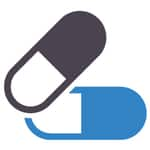

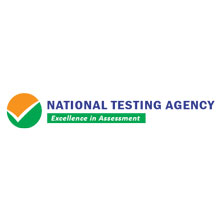

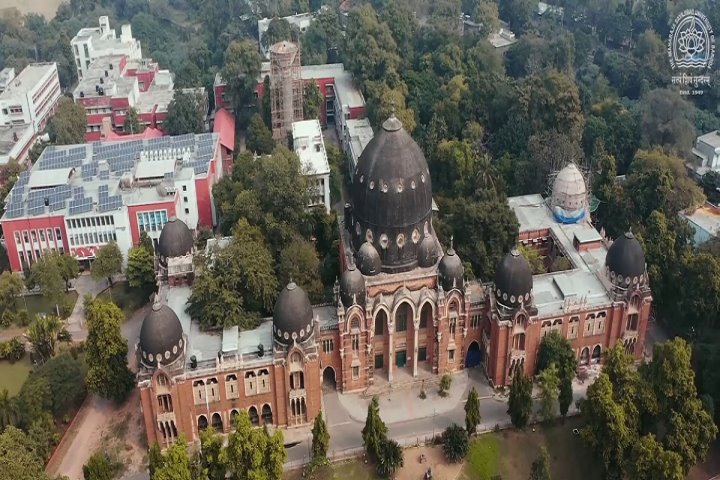

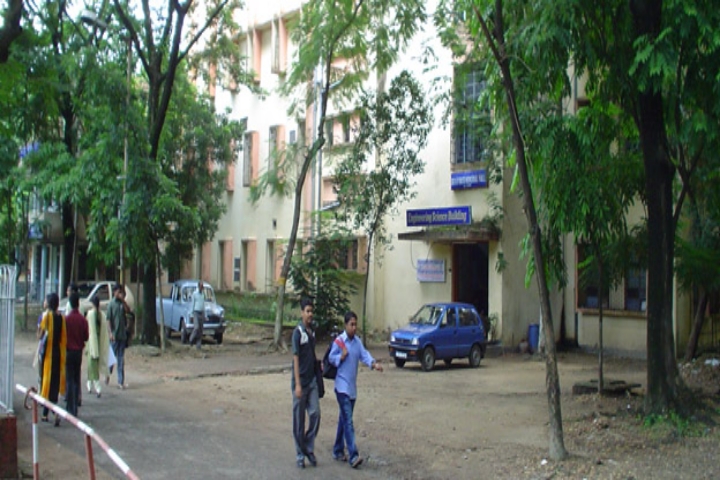

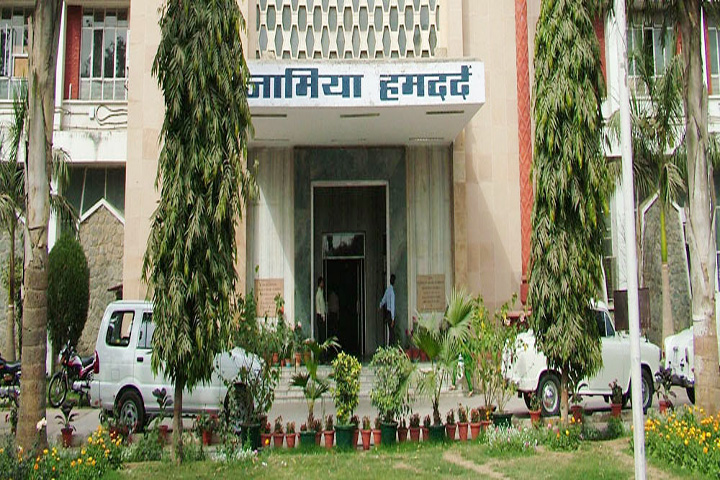
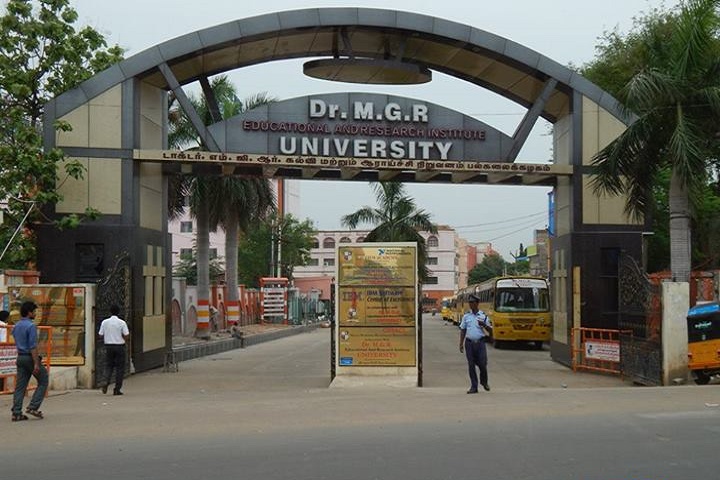
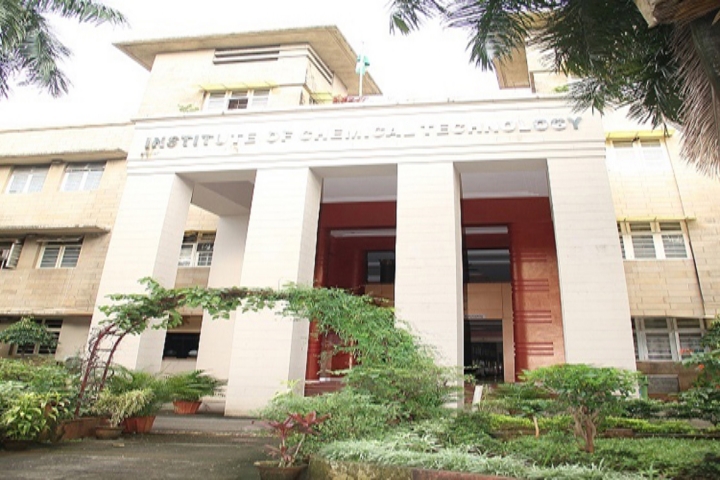

 Answer later
Answer later
